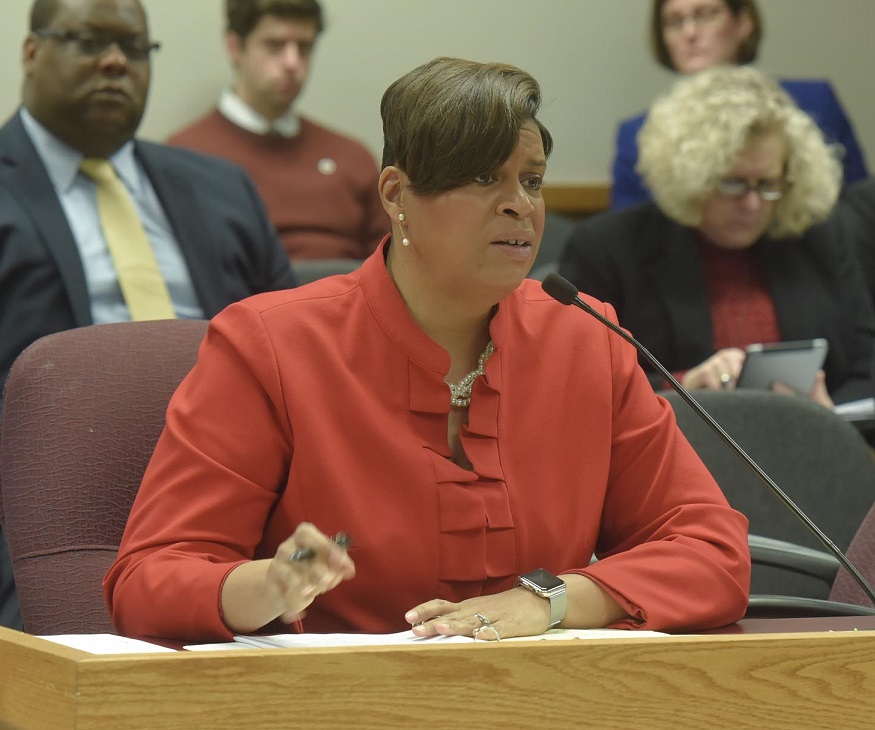The Missouri House has voted to take more steps toward fighting opioid addiction, with more such efforts likely to come from the chamber before the session ends in May.

House Bill 2105 has been sent to the state Senate for consideration. The bill has a number of provisions. Sponsor Keith Frederick (R-Rolla) said the overarching idea behind the bill is to see a shift in the response to opioid addiction from law enforcement and incarceration to treatment availability.
“That’s the thing that’s lacking so much now, is we don’t have enough health care providers to provide access to what’s called, ‘medication assisted therapy,’” said Frederick. “It is basically using medications like buprenorphine and Suboxone that get rid of the craving for narcotics and it allows people to get back to a useful, functional, rewarding life, but they need the medication on an ongoing basis and for that we need healthcare providers to help provide access to that sort of treatment, and we don’t have enough of those now.”
Frederick said the main provision of HB 2105 would create the “Improved Access to Treatment for Opioid Addictions” Program (IATOA). It would use assistant physicians – a position created by legislation passed in 2014 – to work in a collaborative way with licensed doctors to provide addiction treatment throughout the state.
Those assistant physicians will be supported by the ECHO program (Extension for Community Healthcare Options) – a program that uses videoconferencing to connect experts with providers statewide to help providers offer specialized care. Frederick said a module has been created for ECHO that focuses on opioid addiction treatment.
“These assistant physicians will have to become waivered – so they have to take a course on addiction treatment, and then they submit that to the DEA – the DEA can then give them a waiver to prescribe this medication, then they have to work in a collaboration with an experienced addiction treatment specialist, and then they’re also supported by the ongoing education of the ECHO opioid addiction module,” said Frederick. “It’s a wonderful, collaborative way to bring access to this really life-changing, life-saving treatment to people struggling with addiction instead of their ending up in prison.”
Frederick said this program would be among the first of its kind in the nation, and other states are already taking note of it and considering how to create their own.
Another of HB 2105’s main provisions would limit to a seven-day supply the amount of an opioid drug that could be prescribed to someone for acute pain. Frederick said this is meant to keep people from becoming addicted while not limiting such drugs to those who rely on them for long-term pain management.
“The difference between somebody who’s addicted and somebody who’s dependent is a pretty big difference,” said Frederick. “The idea is to prevent people like the high school athlete who has a knee injury and the doc gives him 150 Percocet or whatever – it’s to nip that in the bud; prevent new people from getting addicted, but while acknowledging that there are people in our state that have chronic pain and they’re getting along pretty well, thank you very much. So, I don’t believe we should be going after that patient that is needing ongoing medication on a regular basis but their life is stable and they’re doing well.”

The bill would also create the Prescription Abuse Registry – a registry a person could voluntarily add himself or herself to – for individuals who have struggled with addiction. The registry would do no more than notify doctors who choose to check it that those on the list have had a substance abuse problem. That language was added by Representative Jay Barnes (R-Jefferson City).
“I think a lot of times people with substance abuse problems, at some point in their life they try to get clean,” Barnes said. “At that point in time … they’re in a position when they may want to put themselves on a list like this, but if they have a relapse … being on a list like this would give providers a tool that if they suspect the person of doctor shopping, to check the list and say, ‘What’s going on here? I know that you’re on this list. I know that you’ve had a problem with opioids in the past … what are we doing?’”
A person could petition to be removed from the list five years after adding her or his name to it.
Other provisions in HB 2105 would create a drug take-back program for disposal of unused prescriptions; and bar the Department of Corrections from preventing offenders from receiving medication-assisted treatment for substance abuse or dependence.
The bill would also discontinue patient satisfaction scores of doctors, to the extent allowed by federal law. Frederick said this is to keep doctors from being giving low scores by patients with addiction issues to whom they refused to prescribe opioids. Such false, punitive low scoring can hurt doctors’ reputations, and hurt them financially.
The House voted 128-4 to send HB 2105 to the Senate. Representative Frederick is also handling HCB 15 which will also contain multiple provisions aimed at fighting opioid abuse. That legislation could be coming out of the committee process and ready for debate in the full House in the next few weeks.











